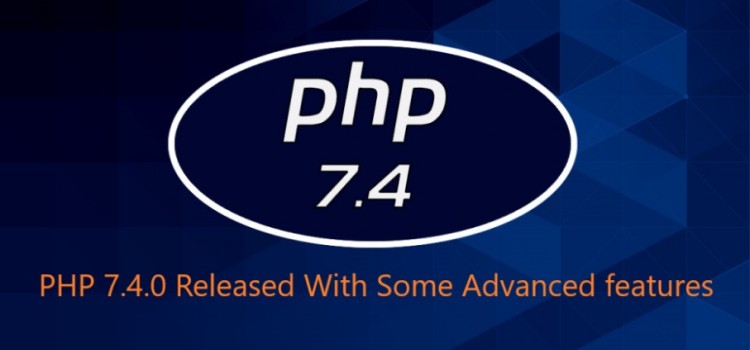Latest version PHP 7.4 Released with Advanced Features

The PHP 7 series has finally come up with its yet another version called PHP 7.4.0. Its features are quite amazing and are immediately available in the market. Its improvements and features are worth exploring to learn what is there to make the programming even more fun and pro. You can download it now and start using it. Before that let us discuss the features of PHP 7.4.0. You can go through PHP Interview Questions and Answers if you are looking for a job change.
Typed Properties
PHP had a void of typed properties for a long time. But now you have the ability to declare type hints to the properties and class variables. This is a new feature that is part of PHP 7.4. Earlier you had to create setter and getter methods for enforcing type contracts. You get to declare type on the properties that are static which wasn’t allowed before. You can do so by following the same method of declaration for properties and class variables. PHP sends a comprehensive message when you try to allot a distinct value from the type. You are allowed to use the types mentioned below: ( Void and Callable are excluded):
- String
- Float
- Int
- Object
- Array
- Iterable
- Bool
- Parent
- Self
The static types can be defined as mentioned below:
Public static iterable $staticProp;
Contravariant Parameters and Covariant Returns
The return types and parameters are the most invariant in PHP. The constraint for the parameter type and return type must be the same for subtype and supertype. Until the parent specified types are being accepted by new types, the permissibility for the particular return types should be more than the particular parameter types while determining the method and parent compatibility. The latest PHP version allows you to use the covariant types. Therefore the subtype can be substituted by the return types and the supertypes can be substituted by the parameter types.
Arrow Functions
PHP 7.4 supports arrow functions. You can create single-line functions using short closures with the help of arrow functions. This way you get to create a simple and neat code. The parent scope is accessible to the arrow function already and thus there is no need for declaring use(). The statements that are hinted type can be declared in the functions that always start with fn.
WeakRefrences Support
WeakRefrences are now supported by PHP 7.4. Its main function is to help the programmer in retaining the object reference and the object does not get destroyed. Hence they work like cache structure. Pecl-weakref is a PECL extension that you can install to use WeakReference. They cannot be sterilized simply.
Array Expression contains Spread Operator
In arrays, you can make use of spread operators with this new version of PHP. The spread operators improve the performance of PHP 7.4 and in comparison with array-merge, they are faster. Spread operators are available in PHP since the PHP 5.6 version but the PHP 7.4 contains the operators for array expressions as well.
Opcache Preloading
In order to have a faster performance of PHP 7.4, you can configure when you are working with PHP. The code files are first compiled by Opcache and later in order to avoid any repetition of the compiled files in the later stages, it is saved in shared memory. Preloading is the concept of loading the files in Opcache. In this article, we figured out that PHP 7.4 has come up with a variety of new and advanced features for programmers. It is better than its predecessors in many aspects and that is what makes it worthy of being used. We have a collection of various Best Interview Questions and Answers that will help you to crack your future interviews.
